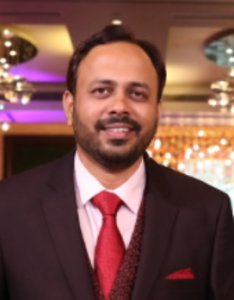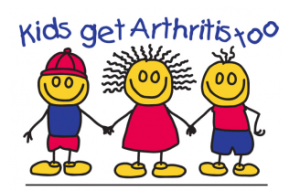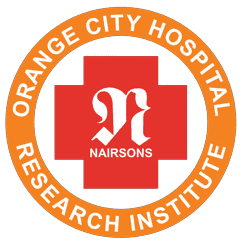What Is Juvenile Arthritis?

DR. SAURABH CHAHANDE
MBBS, MD, DNB
Consultant Rheumatologist
Orange City Hospital and Research Centre, Nagpur
WHAT and WHY is WORD Day?

World yOung Rheumatic Diseases Day is an annual event that takes place on the 18th of March. The ultimate aim of WORD Day is to raise awareness and knowledge level of parents, doctors, primary practitioners, teachers, and the general public to help first and foremostin early diagnoses, and a quick referral to specialized rheumatologist.
What is juvenile arthritis?
Juvenile arthritis is generally defined by the presence of inflammatory arthritis with onset before age 16 years without another identifiable etiology. Other names include juvenile rheumatoid arthritis, juvenile chronic arthritis, juvenile idiopathic arthritis. Around 1 in 1,000 children have some form of juvenile arthritis, it is more often seen in girls and is one of the most common chronic conditions to affect children. The symptoms can develop in children at any time and may last for weeks or months or years, although most children are recovered by adulthood. The cause of juvenile arthritis is not known, however the immune system attacks the lining of the joints, causing inflammation and joint damage.
What are the symptoms of juvenile arthritis ?
Symptoms may vary in each child but are likely to have:
- swollen, red or hot joints
- joint stiffness especially in the morning
- recurrent pain in one or more joints
- movements of joints become more difficult
- in systemic cases rashes, fever and feeling unwell
- visual problems
How is it diagnosed?
Juvenile arthritis is diagnosed using clinical history, physical examination, blood tests (however most children diagnosed with juvenile arthritis do not have a positive result), X-rays and scans and Eye examination (uveitis).
Treatment of juvenile arthritis
Early diagnosis and treatment results in a good outlook for the child. There is usually a team involving Rheumatologist, nurses, physiotherapists, occupational therapists, social workers, and psychologists. Treatment needs to be modified to each child and family as there are different types and each child is effected differently. Treatments mostly include medication ( NSAIDs , DMARDs or Biologicals ), intraarticular injections and physiotherapy. The ultimate goal of therapy is remission ( inactive disease).
What we can do
Along with medications, team of physiotherapists & occupational therapists can provide assessment and treatment for the child to help relieve their symptoms and improve their function. Painful, stiff joints can lead to inactivity and muscle weakness which if left untreated can impair a child’s ability and potential for recovery.
Treatment is designed to maximise a child’s independence and include:
- pain management strategies e.g. use of heat or ice
- stretching exercises to reduce muscle stiffness
- mobilising exercises to improve joint range of movement
- strengthening exercises to improve muscle strength
- exercises to improve stamina and exercise tolerance
- hydrotherapy to work on all of the above
- advice on appropriate activities outside therapy e.g. swimming
- home exercise programme and advice on long term management
What parents can do ?
Arthritis is a disease that wants your child to sit still. You’ve got to help them to beat it by staying active. It is so easy to let their pain keep them on the couch or in your arms. But in the long run, not exercising is worse and can create more pain, making everyday activities like walking or playing painful.
BONE WORK
Child may not always feel like moving – especially when they are feeling stiff and sore. Let them take it easier during those times, but try to get them to do what they can, even if they do just a little bit.
Make exercise program a part of the daily routine like brushing their teeth or doing homework.
Whatever time of day you choose is the time… just do it.
You can assist by providing heat, access to the pool and providing praise for all attempts to carry out their exercise and strengthening program.
